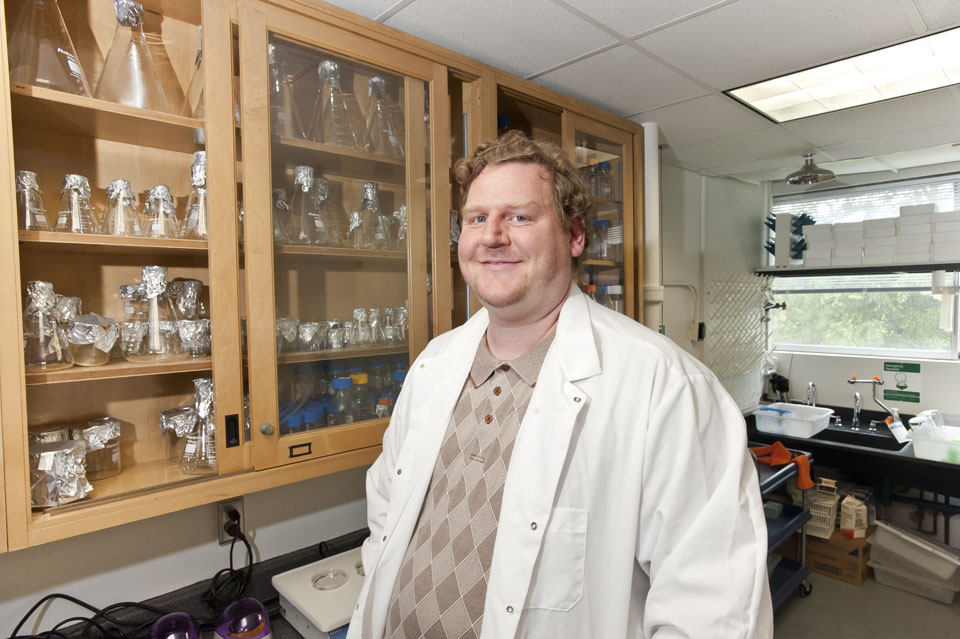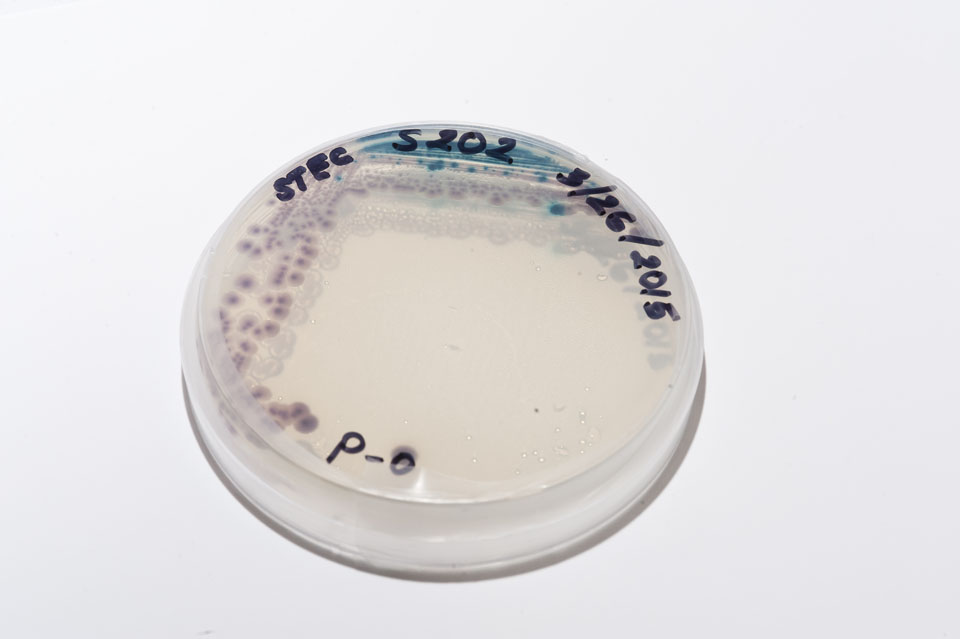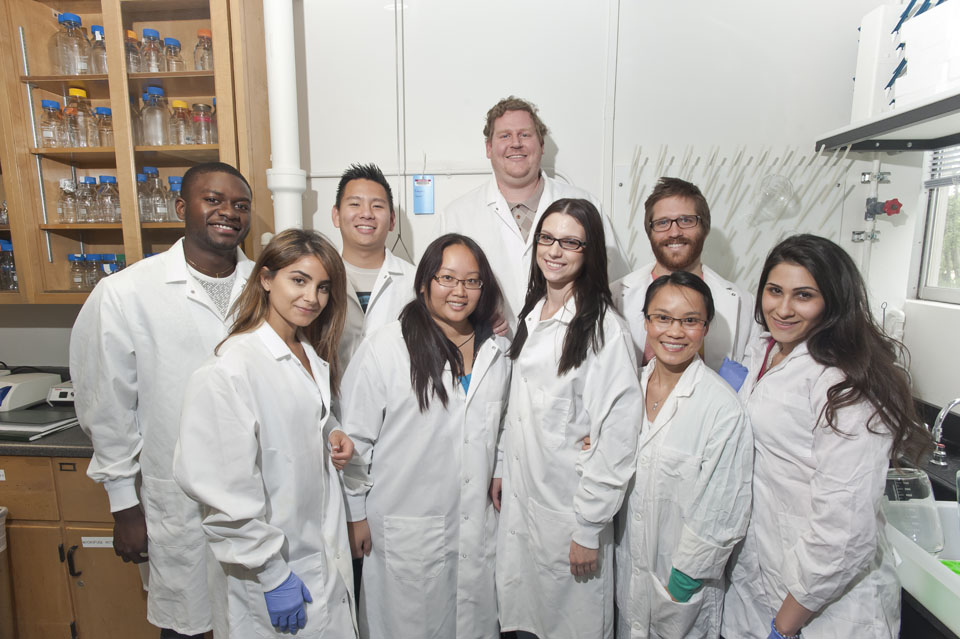CSUN Bio Research Team May Change the Future of Mushroom Food Safety
If you are eating a salad – or in particular, raw mushrooms – you might want to put your fork down before reading this article.
As it turns out, the foods that you eat to stay healthy can actually make you sick if not properly handled, according to research by California State University, Northridge biology professor Kerry Cooper.
By looking at four major foodborne bacteria – listed in order of least dangerous to most dangerous, Salmonella, Campylobacter, E. Coli and Listeria – the CSUN team of nine undergraduate and three graduate biology students ranked the risk people take every day when they include raw produce in their diet.
Cooper, who presented the first wave of data collected by his undergraduate student team last month, is winding down his research on the deadly bacteria found mainly on raw mushrooms. The issue of effectively washing produce is becoming more important, since California’s drought may impact produce-handling methods and water usage on farms, Cooper explained.
“When we look at California, we see a new headline every day that our drought is getting worse and worse and worse,” he said. “Eighty percent of all water consumption is due to agriculture, and it’s a very touchy subject. We produce 21.2 billion pounds of produce every year.”
While there are definitely risks that people can run into with raw produce, Cooper emphasized that the benefits far outweigh the risks, and that food producers are aware of the problems and are hard at work trying to eliminate them.
“I eat my fruits and vegetables every day,” he said. “Just be aware that there is a slight risk of a foodborne disease. Wise choices like avoiding sprouts can really help minimize your risk. Producers work very closely with researchers like myself … to increase produce safety.”
As a former United States Department of Agriculture (USDA) researcher, Cooper had insight into how farms’ water use puts produce at risk of becoming more easily contaminated with dangerous bacteria.
“Irrigation water can concentrate the fecal matter and the manure. These are sprayed into the fields and get on everything,” he said. “Every time it rained, that stuff was washed in the Salinas and the produce was contaminated with salmonella, about 65 percent of it.”
Cooper noted there has not been any recent research done on food retail in California until now.
“Nobody’s put together and really started looking at what we buy as consumers. When I go out and buy romaine lettuce out in the store, what is my risk?” Cooper asked.
Cooper’s research focused on the possible risk of disease from raw mushrooms purchased at a supermarket. “Nobody’s looked at mushrooms, period,” Cooper said.
Based on data gathered during the past year, Cooper and his team found at least 11 percent of mushrooms were contaminated with hazardous bacteria. That rate is nearly as high as the contamination rate of sprouts, a vegetable that the USDA recommends not to feed to children or the elderly for risk of becoming ill.
Andrew Oliver, a graduate student working on the project, said he was astounded by how dangerous the bacteria were that showed up in the samples, like E. Coli, which can cause kidney failure, and even Listeria, which while rare in the United States, has a 16 percent fatality rate if a person is infected.
“The infectious dose of E. Coli is 10 organisms, which you couldn’t possibly see without a high-power microscope,” Oliver said. “This is food people eat every day, so why isn’t it more safe?”
With mushrooms being a billion-dollar industry and producing more than 900 million pounds per year in the United States, Cooper explained that if his research shows a major exposure of disease-causing bacteria, it could lead to USDA reform in how mushrooms are treated before coming to a supermarket near you.
“My wife is convinced that I’m out to get mushrooms,” Cooper laughed. “It’s not because I don’t like mushrooms, it’s just that they are grown in composting mats that are made of manure. We want to know how much risk is there. Are there levels that are high enough to create disease?”




 experience
experience